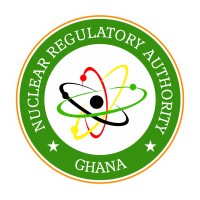
Sponsor: Nuclear Regulatory Authority, Ghana
Period of Consultations: Thu July 03, 2025 to Fri June 27, 2025 The safe,
secure, and peaceful use of nuclear materials and radioactive materials is of
greatest importance to national interest, public health, environmental
protection, and international obligations. This is because nuclear activities ought
to be conducted safely and securely, to
protect the people, the environment and properties from the harmful
effects of radiation hazards, whilst enjoying its benefits.
It is a core mandate of the Nuclear Regulatory
Authority to develop
regulations that licensees must meet to obtain or retain a license or
certificate to use nuclear materials or operate a nuclear facility. These draft
regulations provide specific guidance and implementation details for the
broader regulatory framework outlined in the Nuclear Regulatory Authority Act,
895 of 2015. These regulations ensure consistent and effective enforcement of
safety, security, and other standards related to nuclear activities.
The relevance of the Construction of Nuclear
Installations in Ghana Regulations is to ensure that the construction of
nuclear installations, including nuclear power plants, meets stringent safety
standards and guidelines. These regulations aim to guarantee the safe operation
of these facilities by verifying that they adhere to design requirements and
safety standards specified in documents like the Safety Analysis Report (SAR)
and licensing conditions. The regulations also cover the commissioning of new
reactor facilities, demonstrating that they meet the specified safety and
design requirements.
These regulations assist the Nuclear Regulatory Authority to oversee and at the same time evaluate the construction of nuclear installations like nuclear power plants. This is to guarantee the safety and quality of the facility or plant.
Key Provisions / Thematic Areas
Key provisions:
1. A
person cannot erect a nuclear installation or carry out any nuclear related activities
without written authorization from the Nuclear Regulatory Authority.
2. The
authorization process includes submitting all relevant documentations for the necessary
licenses, permits, and approvals before construction begins.
3. The
authorized person must manage construction activities according to an approved
management system.
4. Processes and methods must consider internal
and external hazards, ensuring the safety of the installation.
5. An
adequate level of nuclear safety and nuclear security culture is maintained in
the supply chain.
6. Clear
plans for emergency preparedness and response addressing potential hazards and
ensuring response is required.
7. Construction
must adhere to codes and standards for welding, fabrication, testing, and
non-destructive examination, which are crucial for safe and reliable nuclear
operations.
8. Commissioning
tests are a vital part of the construction process, ensuring that the facility
meets safety and performance requirements.
9. Provisions
must be in place for managing deviations from normal operation, including
severe accidents.
10. A
process for turnover of the structures, systems and components that are
important to safety is to be established.
11. Penalties
for flouting any of the provisions of these Regulations.
12. Appeals
may be made in accordance with the procedures provided in the Nuclear
Regulatory Authority Act, 2015
Comments
Who Can Comment?
All interested parties (relevant organisations,
co-regulators, business groups, professional bodies, Unions, religious
organizations, Civil Society Organisations, environmental policy advocates,
international partners and so on) are invited to review the draft regulations
and submit comments, suggestions, or concerns during this time.
Structure of Comments:
In your
comments, please add:
Title: Please state the title of
the draft regulation you wish to comment on.
Introduction: Explain
why you are interested in the draft regulation, stating whether you are
commenting on your own behalf, on behalf of your organization or another
organisation, or are endorsing the comment of another. Also add any experiences
or credentials that makes your comments different from that of others.
Background: Clearly identify the
relevant part of the draft regulation you are commenting on. State the issues
within the draft regulation on which you are commenting and list your
recommendations. If you are commenting on a particular word or phrase, or if
you are responding to specific questions or requests for data, state this
clearly and provide the relevant page number, column, and paragraph in the
draft regulation.
Analysis: Please state your detailed
argument and evidence to support your recommendations.
·
Conclusion: Summarise your main
argument and lists your recommendations again.
Submitting Comments:
Comments may be submitted through any of the following methods:
- Email: reviewcom@nra.gov.gh with the email subject header “Reviewcom_Title of Regulation_Your Full Name_Organisation”
- Mail (if applicable): P. O. Box AE 50, Atomic Energy, Kwabenya.
- In-person (if applicable): Houses Nos. 1 & 2, Neutron Avenue, Nuclear Regulatory Authority; Mondays-Fridays, 8:30am – 4:30pm
- Public Participation: Details to be announced later.
Thank you for your participation in this important process.
Key documents to download
How to respond
This Consultation is Closed
Email to:
Write to:
Nuclear Regulatory Authority, Houses Nos. 1 & 2, Neutron Avenue, P. O. Box AE 50, Atomic Energy, Kwabenya


 Loading. Please wait....
Loading. Please wait....